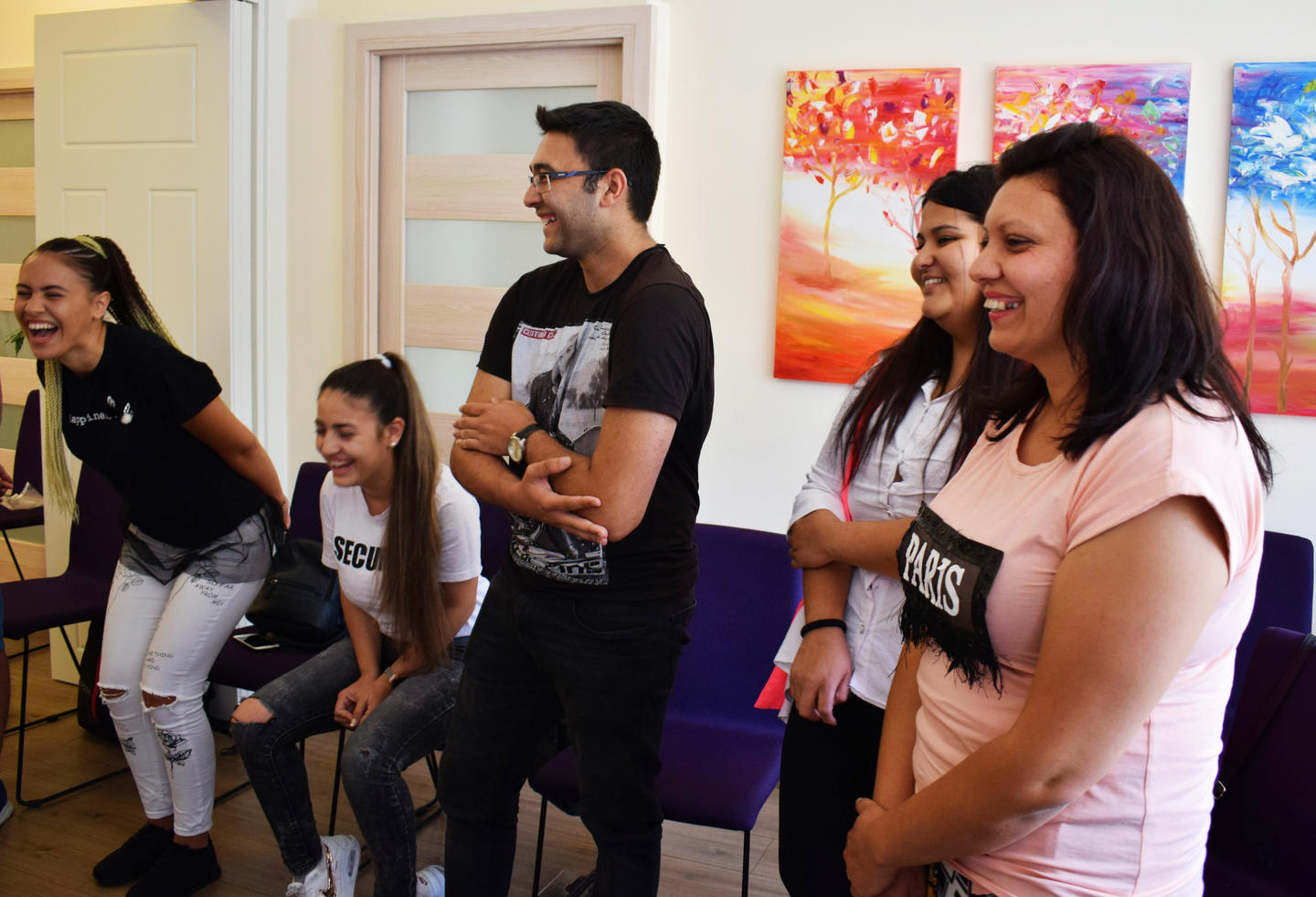This helping hand is exactly what the Med Mentors project in Bulgaria has to offer. By providing both financial and personal support, the project is helping medical students from Roma communities across the country. In this way, it aims to improve their opportunities and success rates, while directly addressing the growing shortage of health workers in Bulgaria. And the result is a growing network of healthcare professionals of Roma descent. This is how:
Making the circle round
The scholarship programme follows what you could call a full circle set-up. Participants receive a scholarship for an academic year, and additional mentorship support from other professionals. This means they become part of a growing network of qualified healthcare professionals who focus on health issues among Roma people.
At the same time, the participants have the potential to become role models for young people of Roma origin. The scholarship programme encourages students to organise or participate in small healthcare related projects in their areas. They can apply for financial support to implement their own initiatives, such as campaigns to raise awareness of common diseases, or to improve the health situation of the Roma.
Bringing awareness to the people
One of these aspiring students is Adelina Radeva, who is a mother of two, and living in a town with a large Roma community - located in the poorest region of the EU. Through the help of the scholarship programme, she is currently completing her fourth and final year of midwife training at the Vratsa branch of Medical University in Sofia.
In addition to her studies, Adelina is a driving force behind a number of initiatives in her hometown of Byala Slatina. She is strongly committed to empowering Roma women, and believes it’s important that women are aware of their health issues - regardless of their social status and women's health insurance coverage.
When the town organised gynecological examinations for uninsured women last August, she saw her opportunity. She set up an initiative called “Prevention Saves Lives” to provide more information about the importance of regular screenings for the prevention of cervical cancer.
How other students are paying it forward
But Adelina is not the only student with the motivation to contribute. The majority of participants in the project have shown responsibility and initiative, devoting their time to activities like spreading useful information, providing free counseling, and offering support to those in need.
Over the last year, many of these activities revolved around the coronavirus pandemic, which hit particularly hard among the Roma communities. Trainee Dimitrinka Dimitrova, for instance, brought her knowledge as a medical assistant in the streets of Sofia. She prepared and distributed information material entitled “Smile, even under the mask”, offering advice on physical and mental health in times of a pandemic.
Other students are working on larger projects to map the extent to which Roma people have knowledge about and access to medical information. Their summarised results and conclusions will be shared after the fieldwork is completed - and will hopefully inspire new activities within the field.
These examples illustrate the impact of the programme, and how an individual scholarship can start a wave of effects. It causes a cascade of improved perspectives: for students, for health care, and for the future of Roma children across Bulgaria.
About the project
The overall objective of the “Mentorship Support for the Next Generation of Roma Health Professionals” programme is to provide mentoring support to Roma students pursuing a degree in medical specialties. The scholarship programme will support 40 Roma students per year, and in, approximately 240 annual scholarships will be awarded within a six-year period. Each individual scholarship will amount to between EUR 2350 and EUR 2650 depending on the discipline of the studies.
Additional objectives
- Providing quality expertise by mentors
- Improving the academic performance of Roma students pursuing a degree in medical specialties
- Organising the academic process in an efficient and effective manner
- Ensuring specific practical competency is provided to the scholars
- Providing opportunities for participation in scientific conferences and forums
Find more information about the project on the project website.
Curious to know more about what we do for Roma inclusion?
Improving the situation of Roma across Europe is a priority of the EEA and Norway Grants. In total, an indicative minimum of € 50 million is allocated to Roma inclusion through programmes in the sectors of health, local development, children and youth at risk, justice and home affairs, culture, research, and civil society. Special focus is placed on countries with large Roma populations – Bulgaria, the Czech Republic, Greece, Romania and Slovakia.
Find out more about the EEA and Norway Grants’ support to Roma inclusion and empowerment
